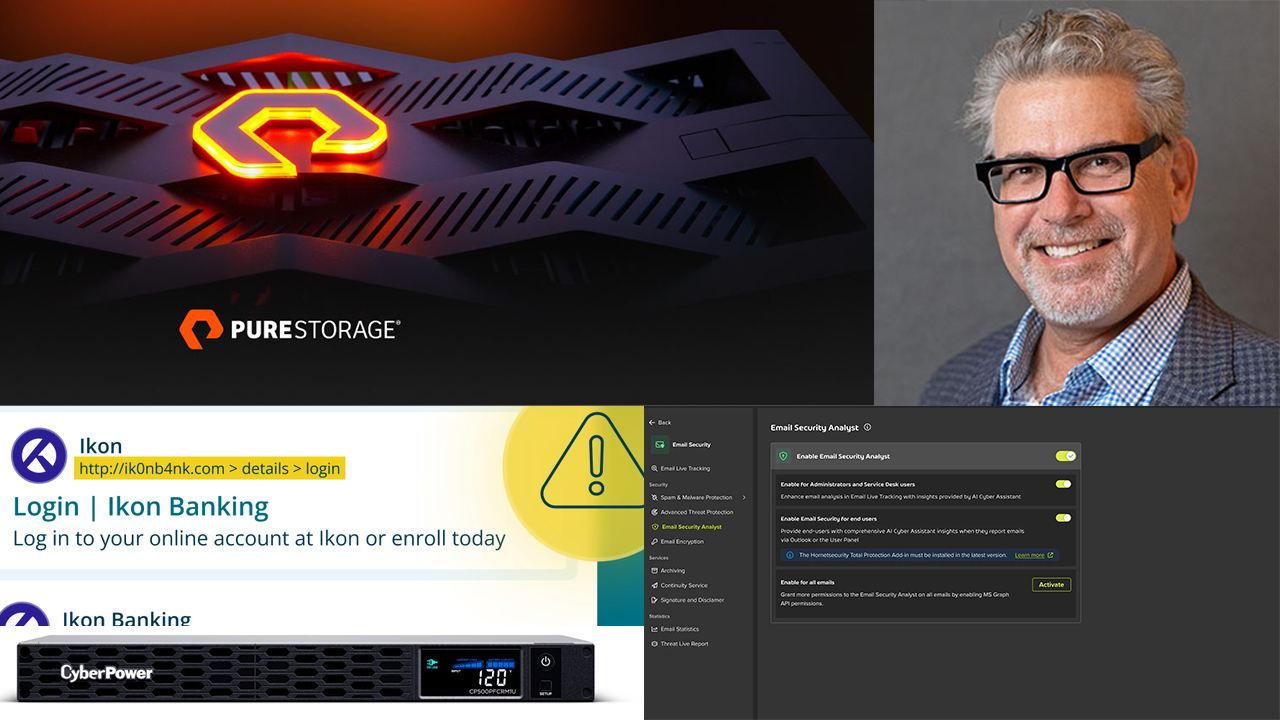Cloud Services—What’s Selling, Who’s Buying
Cloud services are hot—and potentially lucrative. Find out what types of services are selling, and which types of customers are currently in the market.
By Megan Santosus
Even in a slow economy, the IT industry is bullish on all things cloud. Estimates from various analyst firms peg the worldwide market for cloud services in 2010 at around $20 billion, with double-digit growth forecasted. With that kind of money, channel partners that do not already offer cloud services, or are not yet contemplating doing so, are missing a potentially lucrative opportunity.

But where is the best place to make a foray into cloud services? Taking a cue from your customers by assessing their prevailing needs is a good place to start, yet many customers may not be aware of cloud services and their potential for transforming their (and your own) business. In addition, some industries may have characteristics such as regulatory requirements that make cloud services an easier sell. Targeting these industries with cloud services could be a good strategy toward establishing a beachhead in the market.
By definition, cloud services are those computing services that can be delivered via the Internet rather than through the traditional on-premise model. To be considered a true cloud service, offerings are available in a mulitenancy model in which customers use the same version of software; in effect, one channel partner offers a standard service to many customers that access the service online and pay a recurring subscription fee in the process. In the cloud services world, it is the provider that owns the software and associated hardware on which that software runs.
There are three broad categories of cloud services: software as a service (SaaS), which delivers application functionality; infrastructure as a service (IaaS), which delivers functionality such as storage management, backup, archiving, and computing resources; and platform as a service (PaaS), providing environments in the cloud to develop and test applications.
Popular SaaS services include business applications such as email, productivity applications (word processing, spreadsheets, and the like), Web conferencing, CRM, accounting, and ERP. Amazon Web Services and Rackspace currently dominate the market for IaaS. Vendors such as NetSuite and Salesforce.com offer PaaS environments for customizing applications. More recently, Microsoft entered the market with its Windows Azure platform.
CANDIDATES FOR THE CLOUD
Among SMBs, there are no particular verticals “that present bigger opportunities than others for cloud services,” says Todd Fitzwater, a principal of Demand Solutions Group, a provider of on-demand services in Los Gatos, Calif. That said, however, some industries with data storage and privacy regulations such as financial services and healthcare are receptive to cloud-based solutions for storage and security that enable them to cost-effectively meet compliance requirements.
At this point in the cloud services market, company size is still the main criteria for identifying the best prospects. Those SMBs with limited budgets and IT staff are prime candidates for cloud services. Typically, these companies don’t have substantial existing investments in IT systems, nor do they have the capital to acquire on-premise solutions. For many such organizations, cloud services represent a greenfield opportunity to acquire functionality they never could have afforded previously. To other SMBs, cloud services represent a relatively straightforward way to upgrade current capabilities.
To appeal to these SMB prospects, channel partners need to understand where the companies are coming from, according to Kevin Dobbs, managing partner at Montclair Advisors, an Oakland, Calif., firm that helps software vendors transition to the cloud model. Those SMBs without existing capabilities “are much more ROI focused,” Dobbs says. Cloud services, and particularly SaaS-based applications, can’t be sold as a way to drive expenses out of their current IT operations. For larger companies or those with legacy systems, the decision to adopt cloud services “is really a TCO issue,” Dobbs says. “They want to reduce IT costs.”
However, among cloud services in general, SaaS is the frontrunner for opportunities. “The business application as a service”—typically SaaS offerings—”is applicable to every industry, because every industry is looking for a way to cost-effectively implement and maintain applications,” Fitzwater adds.
For resellers that have primarily been in the market of selling on-premise software, SaaS is a particularly promising area of the cloud services space, according to Bernard Golden, CEO of HyperStratus Inc., a cloud consulting firm in San Carlos, Calif. “SaaS probably offers [the] greater potential for resellers compared [with] packaged software, since there is no longer the barrier of needing to obtain capital expenditures for hardware as well as coordinate with overworked client IT staff,” Golden says. “The key issue for resellers will be to develop a business approach that allows them to thrive in a subscription-based partner ecosystem rather than a license-fee-based ecosystem.”
As Golden sees it, IaaS is most promising for resellers that are more technical—they integrate packaged software and custom development, for example. In this scenario, “IaaS will offer opportunity to deliver value without requiring capital expenditure on the part of clients,” he says. IaaS, he adds, is good or better than current on-premise options. At this point, Golden sees PaaS offerings appealing to only the most technical channel partners that provide custom development and integration services.
SMB ADOPTION OF SaaS
According to a recent survey conducted by IT trade association CompTIA, planned adoption among SMBs of popular SaaS options such email, accounting, and productivity applications has increased two- to threefold from 2009 to 2010. CompTIA’s Second Annual SMB Technology Trends Survey also provides a glimpse into the bottom-line potential of SaaS. In 2010, average spending by SMBs on SaaS-based CRM, accounting, storage, and productivity applications was $28,033, $24,084, $20,407, and $19,398, respectively.
Spending intentions may not translate into business for channel partners, however, particularly where SaaS is concerned. “It’s tough to be a reseller of many SaaS applications, because the point is to cut out the middleman,” says Michael Coté, an analyst with RedMonk, a developer-focused research firm. “SaaS really doesn’t lend itself to a white-box kind of service unless you add something of your own on top of it,” he adds.
SaaS add-ons can range from customization to migration, integration, configuration, and ongoing maintenance, as well as responsive, personalized support. Demand Solutions Group is a case in point. “We sell and implement the solutions and then maintain the solutions on an ongoing basis,” says Fitzwater. “We provide ongoing modifications and recommendations on other solutions customers may want to implement.” Rather than a SaaS reseller, Fitzwater thinks of Demand Solutions as “a subscription-based outsourced application management firm.”
The idea of using outside help to implement cloud services seems to resonate with many SMBs, at least for some SaaS applications. In the CompTIA survey, 66 percent of respondents’ plans to implement SaaS-based storage applications involve the help of external vendors and VARs. Other applications for which SMBs look for external implementation help include security (59 percent), CRM (56 percent), and accounting (50 percent).
Even SMBs that implement SaaS-based productivity applications that can be acquired for free through Google Apps have plans to use outside help for implementation. For SMBs implementing SaaS-based email and productivity applications, 45 percent and 38 percent, respectively, plan to involve external vendors and VARs.
RESELLER APPREHENSION
Yet despite customer indications to the contrary, many resellers are wary of SaaS and other cloud services. “We are in a transition point, and a lot of channel partners are nervous,” says Golden. “They wonder what they are going to get paid for if they are not selling and installing software and hardware.”
There is a fear of being left out in the cold if they don’t adapt, but according to Golden and others, that fear among resellers is overstated. “Five years from now, there will be a huge boom in the amount of software SMBs use,” says Golden. “There is a huge opportunity in channel partners helping to move their customers to the cloud.”
Channel partners should start providing help even if they see no immediate impact on their bottom line. Jeff Kaplan, managing director of consulting firm THINKStrategies, says SMBs often begin the transformation to SaaS by trying out, on a limited basis, a free front-office-type application such as email from Google Apps.
Once SMBs get a sense of SaaS, they tend to deploy applications on a wider scale, and then may graduate to other SaaS options for the back office, such as accounting and financial management and what Kaplan calls “interenterprise applications”—applications used among companies such as supply chain and e-procurement. As SaaS applications become more mission-critical, opportunities for channel partners to assert themselves increase.
To adapt to the cloud, Fitzwater recommends focusing on your business knowledge rather than technology knowledge. “Find a business area you know well, and then find a cloud solution provider in that space that you can trust; then go after those opportunities first,” he advises. “In our business, success is as much about your knowledge of a business market as it is about your knowledge of cloud services and the solutions the cloud provides.”
MEGAN SANTOSUS is a writer in Natick, Mass.












